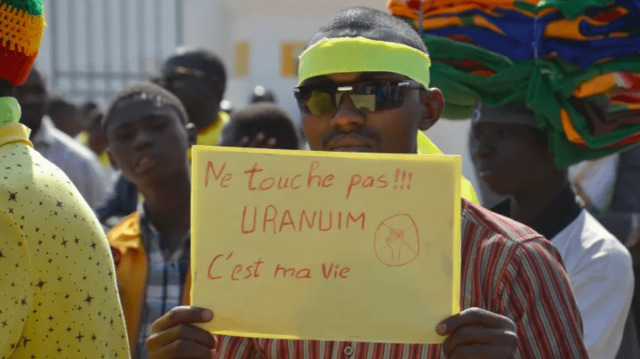
The recent military coup in Niger has led to a slight increase in uranium prices, with market experts closely monitoring the unfolding events' potential impact on Europe's uranium market.
The recent military coup in Niger has resulted in a marginal increase in the price of uranium, a critical resource in the global energy sector. As the world's seventh-largest uranium producer, the country's mining operations persist despite the political upheaval. Market research firm UxC reported a modest rise in the spot price, with uranium inching up from $56.15 to $56.25 per pound, indicating a modest increment, as reported by Al Jazeera.
This price surge adds to a consistent growth trend, as uranium prices have doubled over the past three years. However, the current figures remain far below the 2007 peak of $140 per pound. Amidst the ongoing turmoil, industry experts are closely monitoring the situation, as concerns grow over potential impacts on Europe's uranium market. With the continent already grappling with tight supply conditions, experiencing a nearly 40 percent year-to-date increase in uranium spot prices, industry experts are emphasizing the importance of monitoring the unfolding events in Niger.
Despite the political unrest, uranium mining activities in Niger continue. Orano, the French nuclear fuels company operating in the country, has assured that its mining operations remain unaffected, even as the French government plans to evacuate its citizens from Niger and reduce aid. It is noteworthy that 99 percent of Orano's workforce in Niger comprises Nigerien nationals, underscoring the stability of their operations during this period of uncertainty, indicating a measure of operational stability during this period of uncertainty.
The present stability in uranium spot prices is partly attributed to Orano's strategy of selling uranium through long-term contracts, alongside the traditional slow pace of the summer spot market. However, market analysts warn that the repercussions of the coup may take time to fully manifest in market sentiment. Jonathan Hinze, the president of UxC, notes that the event could potentially catalyze upward movements in uranium prices, given the finely balanced supply-demand dynamics in the market.
Despite concerns about potential disruptions in uranium supply from Niger, the European Union's nuclear agency, Euratom, reassures that nuclear power production in Europe is not immediately at risk. Euratom confirms that EU utilities have sufficient inventories to sustain operations for a span of three years, even in the event of uranium delivery disruptions from Niger. Nevertheless, industry experts raise apprehensions about the impact on Niger's financial position, given that half of its uranium exports are presently flowing to France and the broader European Union.

